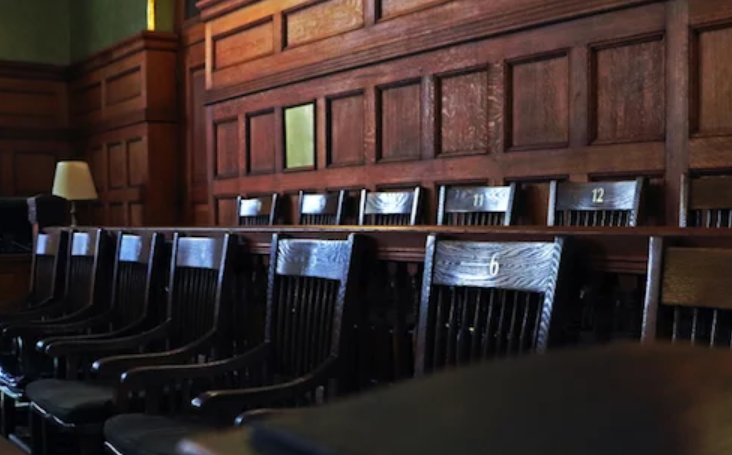Public defender is plaintiff in suit alleging exclusion of felons from Manhattan juries is unconstitutional

Image from Shutterstock.
A public defender who can’t serve on a New York jury because of a 2009 felony drug conviction is a plaintiff in a lawsuit challenging the state’s ban on jurors with felony convictions as applied in Manhattan, New York City.
Daudi Justin, 44, is one of two plaintiffs alleging that the exclusion violates would-be jurors’ Sixth Amendment and 14th Amendment rights, according to the Dec. 8 lawsuit. The other plaintiff is the Community Service Society of New York, a nonprofit that serves people who have been convicted of crimes.
The plaintiffs are represented by the New York Civil Liberties Union and the law firm Clarick Gueron Reisbaum, according to a press release.
Justin, who is Black, was sentenced to two years in prison after he pleaded guilty to possession of a quantity of methamphetamine that would be a misdemeanor today, the lawsuit says. He went on to graduate from the City University of New York School of Law in 2021 and was admitted to practice this year.
Justin “is currently a public defender with Neighborhood Defender Service of Harlem, representing clients before the very courts that bar him from serving as a juror,” the suit says.
The defendant in the suit is the clerk of New York County, who is also its commissioner of jurors.
Black people in Manhattan have been convicted of crimes at rates that “vastly exceed” other racial groups because of racist policies and practices that include disparate drug enforcement, “broken windows” policing and the New York City Police Department’s unconstitutional stop-and-frisk program, according to the lawsuit.
The press release highlights the impact. Twenty-five percent of Black residents in Manhattan who would otherwise be eligible to serve as jurors are excluded because of the felony ban. And likely more than 40% of Black men are disqualified from jury service.
“The statutory exclusion perpetuates a vicious cycle in Manhattan,” the lawsuit says. “The underrepresentation of Black people in the jury pool contributes to disproportionately bad outcomes for Black people in the justice system, which in turn drives their underrepresentation in the jury pool and so on.”
According to the Associated Press, most states ban people with felony records from jury service. California, however, changed its law in 2020 to allow people with felony records to serve on juries if they aren’t on parole or probation and they aren’t registered felony sex offenders, according to a January 2020 story by NBC News.
Hat tip to the Associated Press, Reuters and Law.com, which had coverage of the lawsuit.
A spokesperson for the court system told the publications that court officials must enforce the ban “until such time as the legislature changes the law or a court of competent jurisdiction declares it invalid.”



